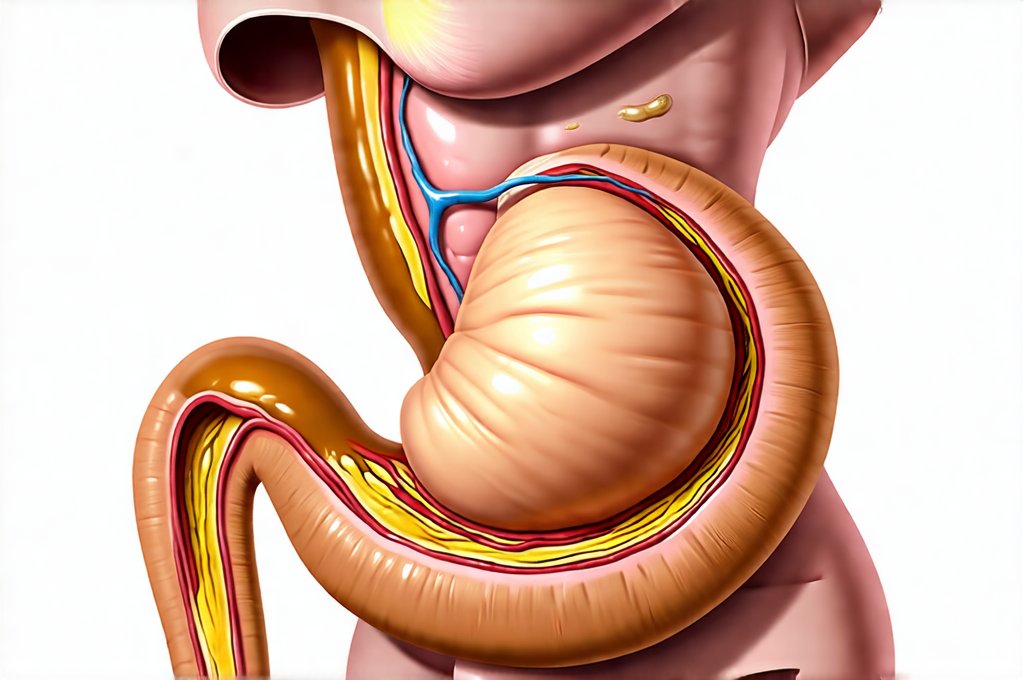Bloating—that uncomfortable feeling of fullness, tightness, and sometimes even pain in your abdomen—is something most people experience at one time or another. It’s rarely a sign of a serious condition, but it can be incredibly disruptive to daily life. Often, bloating isn’t caused by an underlying medical issue requiring pharmaceutical intervention; instead, it stems from everyday factors like diet, digestive habits, and even stress levels. Understanding these triggers and implementing simple lifestyle adjustments can often provide significant relief without resorting to medication. This article aims to explore a range of effective, non-medicinal strategies for calming a bloated stomach and restoring comfortable digestion.
The sensation of bloating is frequently related to gas production in the digestive system or disruptions in normal gut motility—the process by which food moves through your digestive tract. While some gas is perfectly natural (a byproduct of breaking down food), excessive gas, slow movement of food, or sensitivity to even normal amounts of gas can all contribute to that uncomfortable bloated feeling. It’s important to remember that everyone’s digestive system functions slightly differently, and what causes bloating in one person may not affect another. Therefore, finding the right combination of strategies often involves a bit of self-exploration and mindful attention to your body’s signals. If you frequently struggle with discomfort after eating, learning how to eat more without upsetting your stomach could be helpful.
Dietary Adjustments for Bloat Relief
Diet plays an enormous role in digestion, and consequently, in bloating. Certain foods are more likely to trigger gas production or disrupt gut motility than others. Identifying and modifying these dietary elements can often lead to substantial improvement. One key area is fermentable carbohydrates – collectively known as FODMAPs (Fermentable Oligosaccharides, Disaccharides, Monosaccharides, And Polyols). These sugars aren’t necessarily bad for everyone, but they are poorly absorbed by some individuals and ferment in the large intestine, producing gas. Common FODMAP culprits include:
- Onions and garlic
- Apples and pears
- Wheat and rye
- Legumes (beans, lentils)
- Dairy products (for those lactose intolerant)
Reducing your intake of these foods, even temporarily, can help determine if they are contributing to your bloating. It’s not always about eliminating entire food groups; often, portion control is key. Additionally, pay attention to artificial sweeteners and sugar alcohols like sorbitol and mannitol, as these also have a tendency to cause gas and discomfort. For those with more severe sensitivities, it might be useful to test for sensitivities without a lab test.
Beyond FODMAPs, consider the impact of carbonated beverages and excessive caffeine or alcohol intake. Carbonation introduces extra air into your digestive system, while caffeine and alcohol can disrupt gut motility. Fiber is essential for overall health, but drastically increasing fiber intake without adequate hydration can actually worsen bloating. Aim for a gradual increase in fiber alongside sufficient water consumption to support healthy digestion. Finally, eating meals too quickly can lead to swallowing excess air, contributing to bloating; mindful and slower eating habits are beneficial. You might also want to explore how to eat without feeling heavy or bloated for additional tips.
Gentle Movement & Exercise
Physical activity isn’t just good for your overall health—it’s also an excellent way to alleviate bloating. Even gentle movement can help stimulate the digestive system and encourage gas to move through. This doesn’t necessarily mean running a marathon; a simple walk after meals, some light stretching, or even yoga poses specifically designed to aid digestion can make a significant difference. – Walking for 15-20 minutes post-meal is often very effective.
The benefits extend beyond simply moving gas along. Exercise also helps reduce stress, which is a known contributor to digestive issues and bloating. Stress hormones can disrupt gut motility and increase sensitivity to discomfort. Regular physical activity releases endorphins, natural mood boosters that help counteract the effects of stress. Finding an exercise you enjoy makes it more sustainable as part of your routine.
Furthermore, specific yoga poses, like child’s pose, cat-cow stretch, or gentle twists, can physically massage the abdominal organs and encourage digestion. These poses can be particularly helpful in relieving trapped gas and reducing feelings of fullness. Remember to listen to your body and avoid any movements that cause pain. Consistency is key – incorporating regular, gentle exercise into your routine will provide ongoing benefits for digestive health and overall well-being. If you’ve recently had a dietary slip-up, learning how to calm your stomach after a cheat day can be extremely helpful.
Hydration & Herbal Teas
Staying adequately hydrated is crucial for healthy digestion and can help prevent constipation, a common contributor to bloating. Water helps keep food moving through the digestive tract and prevents it from becoming impacted in the colon. Aim for at least eight glasses of water per day, but adjust based on your activity level and climate. Sometimes, even slightly increasing your water intake can make a noticeable difference.
Beyond plain water, certain herbal teas can offer additional relief. Peppermint tea is well-known for its ability to relax the digestive muscles and reduce bloating. Ginger tea has anti-inflammatory properties that can soothe the digestive tract. Chamomile tea may help calm the nervous system and reduce stress, indirectly improving digestion. However, it’s important to note that some teas can have diuretic effects, so balance your intake with sufficient water.
It’s also worth considering temperature. While cold beverages can sometimes be refreshing, they might constrict digestive muscles in some individuals, potentially worsening bloating. Room temperature or slightly warm fluids are generally easier on the digestive system. Avoid drinking large amounts of fluid during meals, as this can dilute digestive enzymes and slow down digestion. Instead, sip water between meals to stay hydrated without disrupting the process. For those with a sensitive stomach, knowing how to cook for a sensitive stomach can be very valuable.
Mindful Eating Practices
Our eating habits often contribute significantly to bloating, even if we don’t realize it. Rushing through meals, eating while distracted (like watching TV), or consuming large portions can all lead to digestive discomfort. Practicing mindful eating involves paying attention to your body’s hunger and fullness cues, savoring each bite, and creating a relaxed eating environment.
- Slow down the pace of your eating.
- Chew your food thoroughly – this aids digestion and reduces air swallowing.
- Avoid distractions during meals.
- Eat smaller, more frequent meals instead of large portions.
Eating when stressed or anxious can also disrupt digestion. Stress hormones divert blood flow away from the digestive system, impairing its function. Before eating, take a few deep breaths to calm your nervous system and create a more conducive environment for digestion. Pay attention to how different foods affect you; keep a food diary if necessary to identify potential triggers. This allows you to make informed dietary choices that support your digestive health. Learning how to spot food reactions without a doctor can help with this process.
Finally, consider the position in which you eat. Sitting upright supports gravity and helps with digestion. Avoid eating while lying down or slouching, as this can compress the abdominal organs and hinder proper digestion. Taking these simple steps towards mindful eating can significantly reduce bloating and improve overall digestive comfort.


















